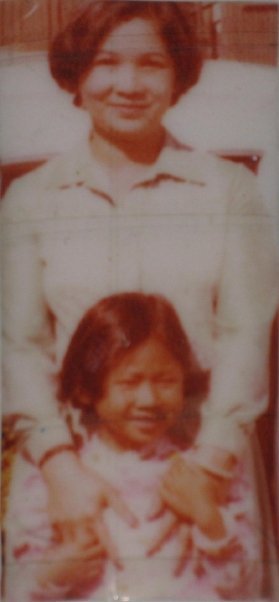Country For Water
Stories of the Vietnamese Boat People
By Amy M. Le
I’ll never forget standing on the shoreline of Malaysia, holding my mother’s hand, and watching our little trawler engulfed in flames, as bright as the setting sun on the distant horizon. The vast ocean swallowed our boat, the bright orb in the sky, and all our hopes and dreams.
In Vietnamese, the word nước has dual meanings: country and water. On April 30, 1975, a day many refugees from Vietnam refer to as Black April, the capital of South Vietnam, Saigon, fell to communist rule. It is the day many South Vietnamese say, “Chúng ta đã mất nước,” meaning, “We lost our country.”
The reunification of Vietnam resulted in a mass exodus of people between 1975 and 1995. Hundreds of thousands of citizens traded their country for the waters of the South China Sea and the Gulf of Thailand. Fearing persecution and imprisonment, these refugees set out on rickety boats and unsea-worthy vessels with only the clothes on their backs, some rice and water, and hidden nuggets of gold and jewelry. They drifted aimlessly into the unknown, hoping to be rescued by humanitarian ships, hoping to start over in a land that offered freedom.
Those who fled by sea were called boat people. My mother, cousin, and I were boat people. We crammed onto a boat under cover of darkness with forty other refugees and charged into international waters, dodging swarms of mosquitos and whizzing bullets from AK-47s held by soldiers in green uniforms. Packed like sardines in a metal hotbox, we vomited and lost our bodily functions where we sat as we clung to each other, cried, and prayed.
Out of the chaos came the calm of glassy, shimmering water, as we bobbed into the vast and beautiful South China Sea. Hours turned into days and with no compass to guide us, we were at the mercy of wind and water. Food quickly ran out. Many perished at sea from raging storms. Countless people drowned. Most didn’t know how to swim. And if the sky predators or the ocean sharks didn’t get us, the Thai pirates surely would.
Refugees with no home were sitting targets at sea. The Thai fishermen took advantage of the boat people, who were too weak and scared to fight. What little they had were stolen by the pirates who boarded the vessel, taking everything from food, water, and valuables, to babies, girls, and young women. They raped, they slaughtered, and sometimes they came back for more carnage.
When you speak to a Vietnamese refugee, the trauma runs deep, and while the mind tries to forget, the body remembers. Parents lost children who were kidnapped, assaulted, and sold. Some say there is a secret, remote, and haunted island where the pirates deposited young girls to be molested and enslaved for entertainment.
For those boat people lucky enough to be rescued at sea or end up in a refugee camp, they waited for their second life to begin. Would it be weeks, months, or years before they were resettled? No one knew. Many dreamt of coming to America, the ultimate land of freedom where the streets were believed to be paved with gold and the people were glamourous and rich…That was the American dream.
Living in a refugee camp posed a whole new set of challenges. Girls were dragged off in the middle of the night to be violated by guards, family members got separated, and time stood still. A refugee who traded country for water had nowhere to turn. Only faith and hope kept the human spirit alive with the will to breathe and fight another day. Sadly, many people did not get sponsored to another country and were repatriated back to the land they escaped. Many more suffered illnesses like malaria, dysentery, and depression. For every baby born in the confinement of these camps, many more lives were taken due to suicide or disease. These refugee camps in Indonesia, the Philippines, Singapore, and Thailand were overcrowded with poor sanitation and shantytown lodging. Homes were quickly erected using bamboo, tin, tarp, and leaves…whatever could be scraped together.
The saving grace for the boat people were humanitarian organizations like the Red Cross, United Nations High Commissioner for Refugees (UNHCR), International Rescue Committee (IRC), and Voluntary Agencies (VolAgs) who brought food, clothes, supplies, medicine, schooling, and aid. Countries like the United States, Canada, Australia, and France opened their borders to take in hundreds of thousands of Vietnamese, including the Hoa people, Laotians, including the Hmong people, and Cambodians, many of whom were ethnic Chinese or Vietnamese people who fled from the Khmer Rouge.
The stories of the boat people were untold parts of history as many locked the nightmares of the Vietnam War in a trunk and buried them deep into the abyss. For the refugees who lived through this trauma, it is too painful to share. As the world heals and the first generation of the boat people take their last breaths, the 1.5 and 2.0 generations are unearthing their origin stories, digging up their roots, unraveling the webs of their heritage, and speaking up for the voices that were once silenced.
It has taken over forty years for this untold part of history to come to light. I hope that the stories of the boat people will be required reading in schools and taught in history classes. For any ethnic group who has had to trade their country for water, may we set the politics aside and address the immediate crisis of humanity.
As Emma Lazarus wrote in her poem titled The New Colossus, “Give me your tired, your poor, Your huddled masses yearning to breathe free, The wretched refuse of your teeming shore. Send these, the homeless, tempest-tost to me, I lift my lamp beside the golden door!”
Images provided by Amy M. Le
